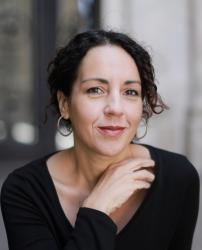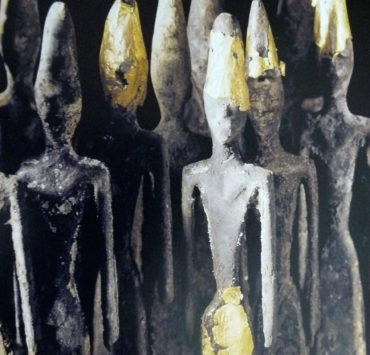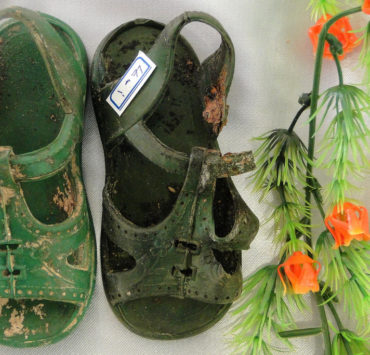
On a cold fall evening Rosa Alcalá and Urayoán Noel read from their books at Wordup Bookstore in Washington Heights. Rigoberto González, Sheila Maldonado and I were in the audience. So of course we uncorked a bottle of wine and started a conversation about all things latinidad.
Urayoán Noel: Rosa and Rigoberto, where does your courage come from? I’m thinking about you two because I think you’re both so amazing.
Angie Cruz: Are you asking about the courage in the writing?
UN: Even the courage to step out into some spaces that we occupy, right? In some ways, moving in spaces where we’re always the marginalized. I see you both, Rosa and Rigoberto, as so fearless—
AC: How do you define fearless?
UN: You know, fierce—
AC: Like in the writing or?
UN: Yes and in how you carry yourself. You’re both people I admire for that. But I know that being an artist is difficult. There’s doubt and self-doubt and a lot of struggle. There’s a lot of isolation. There’s a lot of mental illness. Anxiety. So how do you manage that? There’s also an expectation that you can’t be weak, you can’t be vulnerable, you can’t struggle.
Rigoberto González: How do we stay put together when we really aren’t? I think that’s a big misconception. I was thinking about this earlier. I told you about the young man at the National Book Awards. It was Danez Smith. This fierce poet. I said, Danez, you know you look amazing in that blue suit! And he says, oh yea, you know I wanted to be a young you. And I was just like, what?! But I know what he meant though. Because, think about it. As a queer writer, so many of my queer mentors are dead, right? And also in the latino community, they burn out so quickly. So those elders are no longer around. There’s so few—They’re just burnt out. They’re not publishing, they’re not making public appearances anymore, they’re completely outside of the—
AC: …but is it that they’re not writing or is it that they’re not being invited for public appearances or solicited? I think there are some writers who are struggling with or not wanting to participate in digital media, etc and that may make them less visible. I mean, you’d mention Danez Smith who I think is wonderful at social media and in it he appears to be confident and thriving, but then I saw this Facebook update by him, saying that he had had a difficult year and I wondered if he could only admit to it now that he was nominated for a National Book Award, etc. So it makes me think about vulnerability. When and how we admit to our vulnerability to a larger audience. But yes, I have noticed some writers who just don’t know or don’t have the energy to navigate this contemporary digital moment, and sometimes even, they start to feel irrelevant because of it.
RG: I mean, I feel that sometimes, because, we’re digital immigrants. We’re not digital natives. This generation of writers is moving through the space in a very different way. I tell my classes that I think I’m going to reach retirement much sooner than I thought I would. Also, I begin to understand the people that came before me. Because they’re like, you know, you get tired. You get tired and you really want to claim that space that you’re not allowed to claim. We were having that conversation earlier about the expectations on us. Because of who we are and what we do and can do, and everybody wants a piece of us. The industry, our students, our colleagues. And we give up so much. So there comes a time when you just want to spend time to yourself, and the only way to do that is to really cut yourself off completely. Because it’s an all or nothing, zero-sum game in so many ways.
AC: I just spent some time with Sandra Cisneros in Pittsburgh. And Sandra was talking about activist burnout, although I don’t think she called it that. She was saying how she once had this feeling or need to rescue everyone. Maybe guilt of being working class, or being one of the few. And how she just gave and gave and she felt like it was never enough, people wanted more. It sometimes feels to me like we cannot fill the well of need, right? And then she told me about Ursula LeGuin who said, I’m going to sanctuary. And everyone’s like, what’s the sanctuary? It’s a reclaiming of space, a space to drop out and recharge.
So I asked Sandra, but what if we stop doing the work then who the hell’s going to do it? There aren’t that many latinas out there that have her power and visibility. She’s like, I passed the baton. And I said, to who?! And I wonder, is that what you mean by retirement? Where you say, you know what, I did my work. I pass on the baton.
RG: I think so. And you have to trust that the world’s not going to collapse. And first thing to admit is that you’re not the one holding it up. But it takes a big moment to get there because the whole time you think you are. And that’s why you don’t give up. And that’s why you keep doing. And that’s why, for so many of us, the world does collapse on top of us before we hand it over to somebody else. What do you think?
Rosa Alcalá: You said something earlier, that we don’t have to hold it all together. And I think that sometimes the appearance of having it all together is part of the burden. I started late. I got my first book published at 40. My first manuscript, the one I wrote in my MFA, it got rejected and rejected. I didn’t know that part of it wasn’t just writing good poems. Maybe that manuscript was not worth publishing, period, but I didn’t have the support and the network to do the things that I needed to do for my work. I just thought the work would speak for itself. Like if I was good enough, I would be recognized eventually.
AC: And what do you mean by recognition? What is the expectation of recognition? Is it a literary award?
RA: I’m not even talking about awards. Because that’s really not my world. I’m talking about getting published initially. I’m talking about even getting a book out. Because my work didn’t fit in neatly anywhere. I think all of those categories have opened up, have shifted, and become more porous, but suddenly I was meeting people who were exploring, even if the form in which they were doing it was different, similar issues about identity, for example. In an experimental way or whatever. I think my work is very straightforwardly lyric, but people call it this other thing. Whatever. But I feel like there’s more space for me.
Sheila Maldonado: I put you in the New York School. Because Brainard shows up so much. I wanted to teach you, but I didn’t know what school, but I feel the conversational…
RA: Yeah. But there’s a problem with lineage. Like you should or could only claim certain people. My work takes from all over the place. I think we build our own literary lineage—
SM: Right, but it was cool to teach schools and movements but then you’re like, this is kind of all bullshit. But it’s a good place to start. Like I taught Nuyorican and New York School and Black Arts and Central American Poetry. Like that’s not a school— ::laughter::
RA: Actually, in those You poems that I read tonight, a lot of them take place in my twenties, these vignettes. One of the things I should write about is leaving my temp job and going to the Nuyorican Poets’ Cafe. Because at the time I was going to St. Marks Poetry Project and also the Nuyorican. Those were influences. They were both performance spaces but [with] different kinds of performances.
SM: Same.
RA: in some ways there was a fluidity in those spaces that wasn’t acknowledged in the literary world and in publishing.
UN: You mean in the 90s, right?
RA: Yeah. There was a fluidity in those spaces. Not so much—
SM: Everybody knows each other. Like if you’re downtown, everybody knows each other.
RA: But I didn’t see that reflected in the books.
SM: In school, in academia. That’s where it’s not reflected.
RA: Right. And then you have to choose, you are this or you are that. It wasn’t that you were being asked directly to choose, but it’s like, how do we place you? So, for a long time I thought, well at some point my work is going to be good enough for someone to publish. And I realized that the times had to change. My work was always sort of doing the same thing. And it’s gone through different stages, but I feel like those initial concerns are the same. I looked up a journal that I wrote when I was at Brown doing my MFA in Creative Writing and I was concerned with the very same things that I’m concerned with now. I did not become experimental because I went to Buffalo, you know what I mean? I was still playing with language and form because, I don’t know, when you grow up the daughter of an immigrant it’s kind of an experimental experience. Your thinking about language a kind of material thing. Writers deal with that relationship to language in different ways but for someone who grew up bilingual–there’s so many examples of writers who come from a bilingual background who approach that in a different way–we’re all very aware of the materiality of language because we’re always outside either English or Spanish. We’re always mediating between the two. So for me it wasn’t even about winning awards. It was about where is there a place for my work? It took until I was forty but I met some really amazing people who helped me understand that there was a place. Roberto Tejada for one, who is a really important person for me. And then there was Mónica de la Torre, there was Urayoan Noel and Carmen Gimenez Smith. Edwin Torres started at the Nuyorican. Suddenly it’s like, there is this community and it’s not homogenous. We’re all writing differently.
So going back to the question of vulnerability,—I think some of my students think, you never got a poem rejected! No one ever trashed your poem in workshop. I’m like, honey, you just don’t know. I’ve been through all the rejection and heartache in the world with my writing. I’m in a good spot now. I mean, I’m not famous, but I’m in a good spot. That took a lot of work. They need to see it. I think that vulnerability is part of our mentorship. It isn’t about just being a perfect, it’s about showing the difficulty. Some of our students are parents. They’re not getting a lot of money to go to school. They’re struggling financially. As I’m getting older, I feel more okay with being vulnerable. I think it’s scarier when you’re a young woman. Because we know what happens to young women who are vulnerable or show vulnerability. But as I’m getting older I feel like, that’s okay. I can even show my maternal side. I’m much more comfortable as I’m getting older and it’s nice to feel that both my writing is okay just the way it is and—I mean I always want to be better, but I always wanted to write like other people, but I feel like I’ve come to accept it. That’s why CantoMundo was such a beautiful experience, you know? We were there together. But I wish that I had had a place like that to just be. And to talk and get guidance. I almost felt like I was a fellow at CantoMundo. I felt like my soul was being fed.
AC: Being that all of you have participated in CantoMundo as either faculty or fellows, what has happened for all of you, that’s different, in that context, that has not happened in other workshops? What is possible in that kind of space like CantoMundo that might not be able to happen in another context?
RG:I think all the masks just—
SM: Drop. Yeah, that’s true. Well I kept one or two up but—
RG: Well me too but even then, so much so, almost like too many!
AC: What is one of the masks that fell off?
RG: The fear. The fear of showing emotion. In workshop, even if you bring in a poem that’s very personal, you just have to be rigid. But I think that in this space people allow themselves to cry. They allow themselves to have these vulnerable emotions. But let me tell you: it was overwhelming. I was shocked the first night. I went back to my hotel room and I was like, I don’t know if I can handle this another day!
SM: What that made me think of was, when I went to Brown. I was 17. I did my undergrad there. They had this thing called TWTP, which is Third World Transition Program. CantoMundo sometimes reminded me of that which scared the shit out of me, because a lot of things came out. This time though I’m older and now I’m the facilitator in some way even though I’m not faculty. Everyone’s super young like 20s, 30s. It’s a real difference in ages.
AC: Is it because that’s who applies mostly?
SM: They’re mostly in MFA programs, which is an issue.
UN: I said that in my blog. CantoMundo hasn’t decided if it wants to be a feeding ground for MFA-land, or this other thing and it’s kind of uneasily doing both—
SM: But I broke down this time. The first time I was like, pull it together. And this time I came in and I called it LlantoMundo… ::laughter::
AC: How do you think it can help produce better work?
SM: It makes you think about a world where you’re not isolated.
AC: But does your work change? Like the actual work?
RA: I had a different experience. I was impressed by the diversity of ages. It was impressive, just the diversity as a whole. To have that diversity even within that frame of Latinidad, in age and the kind of work that was being represented, and the different backgrounds. All of that I thought was really good to see. Just the aesthetic approaches were—
SM: Super varied. Yeah.
RA: And I felt an openness that I don’t always feel. Like an openness to whatever I wanted to give them in workshop. This willingness and eagerness. I think the space was created for that possibility. I left there feeling like I got something that I needed. I know everyone saw us there as the people that were going to teach them something, and I know it sounds corny but I really did leave there feeling like I—
SM: like you were taught.
RA: Yeah. Like I was taught.
AC: But how does it change your work?
RA: You’re like, enough of the feely-feelies!
SM: It makes you more of an activist. It makes you more aware of everybody. You want to have everyone know who you met. I wanted everybody to know who I met. I was like, I didn’t know these people existed. You just kind of wanted—
UN: Didn’t that make you angry? Because that made me vulnerable, all the crying. You and I always joke around. You see also people that you know in a very vulnerable space, but also it made me angry because I thought even in New York, you’re in this bubble and being Latino is kind of a secondary identification. Boricua or Dominican. You have the privilege of secondary identification. And when you’re in that space you see this shit matters. And Latinos always have an epistemological identity crisis. No one knows what it means and it erases blackness, Latinos can be white or whatever, so there’s this epistemological uncertainty about what it means and then you go into here and realize this shit matters. This is really urgent and—
AC: …the work itself feels urgent.
RG: The people coming together it makes it me feel like at least when you’re in New York, you can opt out of it
AC: Does it almost feel like the work is being heard,finally? Like in a different way?
RG: Like by your audience. We all say, well who’s your audience? And there we’re like, well this is our audience! We don’t have to explain Spanish, cultural—
AC: There’s not all the translation.
RA: I teach in a bilingual MFA program and I’ve been thinking a lot about, what role do I play in academia? What do I make possible? And I think CantoMundo had me return to my day job thinking it is so important what we do. All of this stuff is written about how horrible the MFA system is, and it has problems, I agree. But if I hadn’t gotten an MFA at Brown I wouldn’t be where I am now. It opened up worlds that I wouldn’t have had access to. I still had to struggle after that because I didn’t have all those connections, I didn’t know how to do what I needed to do to become a writer, and I continued to work temp jobs and waitress after that, but let me tell you: Brown was the first time I left left New Jersey. So I see MFA programs as opportunities for certain students to maybe be able to discover something beyond. It gave me something that I wouldn’t have found on my own. I can work to better that system of the MFA and TAships and all this stuff, but it reminded me that there are students in our program like me that I can say, oh you should send here, you should be doing this, and they wouldn’t have gotten it any other way unless they had been in the program. Maybe there should be more spaces besides an MFA for that to happen..
AC: …like CantoMundo.
RA: Right. But I don’t see the MFA program as this completely evil sort of thing.
AC: Thank you for the conversation.
Deadline for CantoMundo December 31st, 2017.
Faculty: Ada Limon and Daniel Borzutzky.
APPLY! APPLY!
BIOS:
Angie Cruz is the author of two novels, Soledad and Let It Rain Coffee. More recently her shorter works have appeared in Virginia Quarterly Review, Gulf Coast, Miami Rail and Texas Review. Awards include NYFA, Camargo, Pittsburgh Foundation of The Arts, Yaddo, and Macdowell. She is founder and Editor of Aster(ix) a literary/arts journal and teaches at University of Pittsburgh. She has two forthcoming novels, Dominicana and Il Palazzo.
Rigoberto Gonzlez is the author of 20 books of prose and poetry, most recently the book of poetry criticism, Pivotal Voices, Era of Transition: Toward a 20th Century Poetics. His awards include the Guggenheim fellowship, NEA, American Book Award, and the USA Rolon fellowship. He’s professor of English at Rutgers-Newark, the State University of New Jersey and on the board of trustees of the Association of Writers and Writing Programs (AWP).
Urayoán Noel is the author of several books, most recently the critical study In Visible Movement: Nuyorican Poetry from the Sixties to Slam (Iowa), winner of the LASA Latino Studies Book Prize, and the poetry collection Buzzing Hemisphere/Rumor Hemisférico (Arizona). His bilingual edition of Pablo de Rokha’s poetry, Architecture of Dispersed Life, is forthcoming with Shearsman Books. Noel is an associate professor of English and Spanish at New York University and also teaches at Stetson University’s MFA of the Americas.
Rosa Alcalá is the author of three poetry collections, most recently MyOTHER TONGUE. Her poems are included in American Poets in the 21st Century: Poetics of Social Engagement (eds., Claudia Rankine and Michael Dowdy), among other anthologies. The recipient of an NEA Translation Fellowship and runner-up for a PEN Translation Award, she is the editor and co-translator of Cecilia Vicuña: New & Selected Poems (Kelsey Street Press, forthcoming). She teaches in the University of Texas at El Paso’s Bilingual MFA Program.
Sheila Maldonado is the author of the poetry collection one-bedroom solo (Fly by Night Press, 2011). Her 2nd publication, that’s what you get, is forthcoming from Brooklyn Arts Press. Her poems have appeared in Gulf Coast, Ping Pong, and The Wandering Song: Central American Writing in the United States. She is a CantoMundo Fellow and a Creative Capital awardee as part of desveladas, a visual writing collective. She teaches creative writing for The City University of New York.
Image Credits: tacit requiem (joanneQEscober )

Angie Cruz's novel, DOMINICANA is the inaugural bookpick for GMA book club, and the Wordup Uptown Reads selection for 2019. It was also longlisted for the Andrew Carnegie award in excellence in fiction for 2019. It was named most anticipated/ best book in 2019 by Time, Newsweek, People, Oprah Magazine, The Washington Post, The New York Times, and Esquire. Cruz is the author of two other novels, Soledad and Let It Rain Coffee. She's the founder and Editor-in-chief of the award winning literary journal, Aster(ix)and an Associate professor at University of Pittsburgh where she teaches in the MFA program. She splits her time between Pittsburgh, New York, and Turin.







